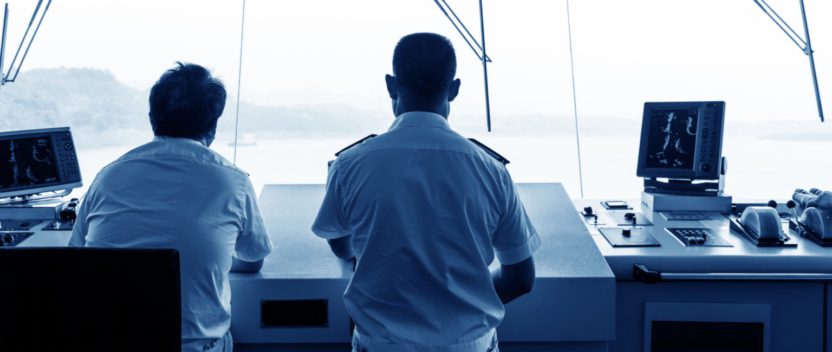Show me the money: how does German shipping grow?
In our first piece on the prospects for the German shipping market (http://greatcircle.co/article/german-shipping-getting-smarter-survive), we looked at the results of a survey run by consultants PwC on current sentiment and future plans among a cross section of German owners.
In the second piece, PwC Partner Claus Brandt talks about the numbers behind the research and how owners are positioning for the medium term. In the final piece, we’ll look at what changes are likely to shape the country’s shipping industry in the years to come. What immediately emerges when the books are opened on German shipping is a story that looks bleak; with owners and banks who are now entering a transition phase where they decide whether to continue or cash in.
One of the key topics to come out of the PwC survey was consolidation and whether owners had managed to staunch the tide of losses of manpower and money. Brandt is doubtful that the process has come to an end. The problem, he says, is judging the timing of an upturn strong and sustained enough for owners to see the end of the process.
“From my perspective, we will have more consolidation in this industry. It’s still going on and it’s clear that all owners are hoping that the markets will change enough for them to keep going,” he says. “But what we have to consider is that after six years of crisis, the equity in a lot of companies is totally lost. And we can foresee that the prospects for the rest of 2014 and 2015 are not the best.”
That is something of an understatement. Even if the market picks up in 2016 or 2017, the issue is how to survive while making continued losses meanwhile. After the crisis, many banks provided owners with fresh money because the relationships that characterise German ship finance meant that the banks were prepared to take a long view. But the market has failed to react as predicted.
“Lending to these companies gave them breathing space but the owners didn’t know how much they would have to invest in the following couple of years. Four years ago the banks had the same decision – should they go on or should they cut down the engagement – and they came to the decision to go on because the market would get better. Now they are in that situation again. Mostly they are saying, let’s go on, but that number is declining.”
With the entry of ‘shadow banking’, from private equity, investment trusts and other non-traditional financial sources, Brandt now says the game is one of when to fold and when to call. The problem for the banks and their clients is that once these interests know they want to sell, achieving anywhere near the price they want gets harder. As Brandt sees it, the approach of the new investors is only to take positions in investments that are offered with some discount.
“A common situation could be that the bank ideally wants 100%, but knows in two years that might be less. In three years it might be only 50%. So the PE investors offer them 80% and the bank takes it. This has happened in several cases in Germany and I assume that we will see it happen more.”
The result might be good for short term investors like private equity funds but the banks must reflect the losses in their balance sheet and its own investors – as well as regulators – are likely to demand a limit on the number of times this happens in future.
Before the crisis, Germany’s banks represented some of industry’s biggest lenders and they have already done much to clean up their loan books, reduce their exposure and even leave the sector altogether. Brandt estimates that the banks have cut their exposure from E110 billion in 2009 to roughly E90 billion today.
And contrary to many finance watchers, Brandt thinks PE investors understand that shipping is a long term, relationship-based market. He reckons his office fields a call every other day from investors looking for opportunities. But why would they want to invest in shipping when the market is so bad?
In part because asset prices are historically low, also because investable asset classes are few and there is very little to be gained from putting the cash in the bank. “Everybody is sitting on cash and looking for alternatives and the situation in shipping is such that they have the opportunity to buy something at a low price and a chance to realise higher prices when the market improves.”
Private equity houses understand now that an investment in shipping can’t be a short-term investment, he says. A traditional conversation with a private equity house would include an exit timeline of three years. Now he says, the funds realise they may have to take some pain over the next few years, see an upturn from perhaps 2017 and ready for an exit around the turn of the decade.
“It’s crystal ball gazing to some extent but that would give you a scenario by which time the losses had stopped, profits were being made and an exit could follow. I don’t think doing this before that date is realistic, but I think there are a lot of arguments for this position.”
It seems logical to assume given the stress on Germany’s ship finance sector that the KG system, a tax-efficient private investment vehicle that helped finance the domestic fleet for years, will prove a victim of the recession. Brandt agrees that for now at least, ‘the system is dead’ but says the concept should not be thrown away given its simplicity and transparency for all involved.
“It’s been very badly damaged and as a result, its reputation is bad wherever you are in the world. But KG is just a structure. When the income is not enough to meet the payments that is a problem of the asset, of the business, not of the structure. When the market changes then I think the KG system can come back.”
Ends


